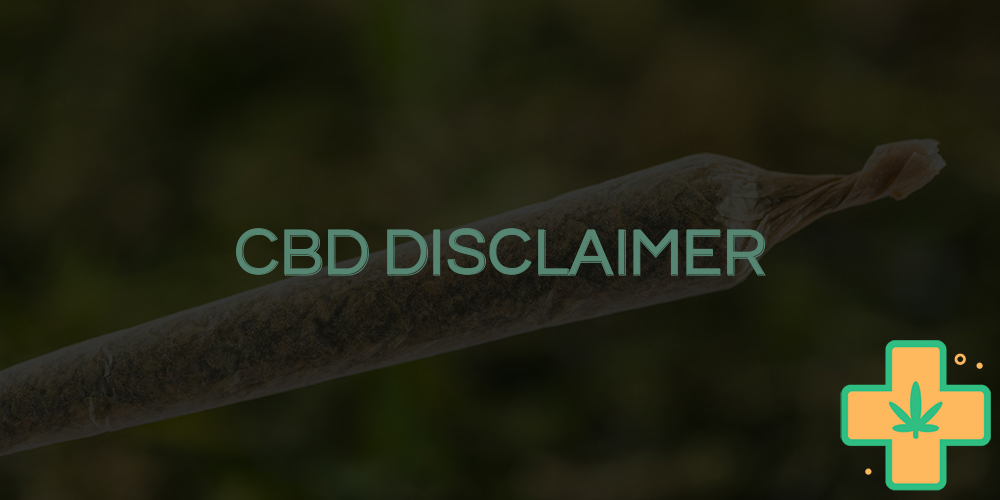CBD, or cannabidiol, has become a prominent topic of discussion among people looking for natural cures for a variety of maladies in recent years. As public interest in CBD develops, so does the demand for accurate information regarding its legal consequences. However, understanding the complicated environment of CBD legislation can be difficult, especially given the plethora of false information available. This essay will shed light on the legal elements of CBD, providing important insights to help you better comprehend its place in today’s society. By exposing the facts and eliminating common myths, we strive to provide you with the information you need to make informed decisions about CBD use. So, let’s go on this adventure together, unraveling the complexities of CBD legality and making sure you stay on the right side of the law.

The CBD Legal Landscape: Understanding the Important Disclaimers
With CBD products gaining popularity, it is critical for both consumers and companies to understand the legal situation surrounding these things. Cannabidiol (CBD) is a non-psychoactive chemical present in cannabis plants. CBD, despite being derived from the same plant as marijuana, does not have the same mind-altering effects. Despite its potential health benefits, the legal position of CBD is complicated and differs by jurisdiction.
The legal status of CBD in the United States is influenced on the source of the chemical. The 2018 Farm Bill authorized CBD generated from hemp, a kind of cannabis with low levels of THC (the psychoactive component of marijuana). This means that hemp-derived CBD products having less than 0.3% THC are permitted on a federal level. CBD generated from marijuana, on the other hand, is still categorized as a Schedule I substance under federal law, making it unlawful on a nationwide scale. It is crucial to understand that each state has its own CBD legislation, and some may have tighter rules than the federal government.
Businesses selling CBD products must traverse a thicket of rules and disclaimers to guarantee compliance. Due to the lack of federal oversight, it is the obligation of manufacturers and sellers to give accurate product information and disclaimers. This includes disclosing the CBD content, the CBD source, and any potential side effects or interactions. Furthermore, firms must exercise caution in their marketing claims, as making baseless health claims might result in legal ramifications. As the legal landscape surrounding CBD evolves, businesses must keep educated and modify their processes accordingly.
CBD Legalities Revealed: What You Should Know About Disclaimers
Understanding the significance of disclaimers is critical when it comes to the regulations around CBD products. With CBD’s growing popularity and possible health advantages, users must be aware of the legal ramifications and hazards connected with using these products. This post will throw light on the topic of CBD disclaimers, providing you with the necessary information.
To begin, it is critical to understand that the legal position of CBD differs from country to country and even within various states or areas. While some nations have authorized CBD for medicinal or recreational purposes, it is still prohibited in others. The legal position of CBD, for example, is complex and continually changing in the United States. Consumers and businesses must both be aware about the various legislation in their individual areas.
One of the primary reasons for CBD disclaimers is to ensure compliance with these regulatory requirements. CBD manufacturers and merchants hope to protect themselves from potential legal ramifications by placing a disclaimer on their products. Disclaimers often include information on the intended use of the product, any potential negative effects, and any legal restrictions. They act as a protection by informing consumers about the legal restrictions and potential hazards associated with the use of CBD products. Before making a purchase, consumers should carefully read and comprehend these disclaimers.
CBD Disclaimer Guidelines: Critical Legal Insights
With the increasing popularity of CBD products, it is critical for both consumers and companies to grasp the legal complexities around their use. CBD, or cannabidiol, is a chemical derived from the cannabis plant that has been linked to a variety of therapeutic effects. CBD’s legal position, however, can be perplexing due to its relationship with marijuana, which remains banned at the federal level in many nations. It is critical to follow CBD disclaimer standards to maintain legal compliance and to safeguard both consumers and companies.
To begin, firms must say explicitly on their product packaging and marketing materials that their CBD products are not intended to diagnose, treat, cure, or prevent any condition. This disclaimer is required to avoid making misleading medical claims and attracting the attention of regulatory authorities. Furthermore, the FDA has only approved one CBD-based medicine, Epidiolex, for the treatment of certain forms of epilepsy. As a result, any claims about CBD’s health benefits should be supported by scientific research and proof.
Furthermore, CBD products should be appropriately labeled, containing precise information about the product’s substance, such as the CBD concentration and any other chemicals. This ensures transparency and allows consumers to make educated choices. Furthermore, firms should avoid selling CBD products as nutritional supplements, as this could lead to regulatory concerns. Instead of touting specific health advantages, they should pitch them as wellness goods, highlighting their ability to boost overall well-being.
Understanding CBD Disclaimers and Their Importance for Legal Clarity
When it comes to the rapidly expanding CBD product sector, legal clarity is critical. CBD, also known as cannabidiol, has grown in popularity due to its possible health advantages. However, navigating the legal landscape surrounding CBD can be difficult, which is when CBD disclaimers come in handy. Companies utilize disclaimers to advise consumers about the legal status, limits, and potential risks connected with their CBD products.
CBD disclaimers are important because the legal status of CBD differs from country to country and even among various states or provinces. While CBD produced from hemp is allowed in many states, it is still restricted or illegal in others. Companies can guarantee that consumers are aware of the legal ramifications and can make educated decisions when purchasing and using CBD products by providing a disclaimer.
Furthermore, CBD disclaimers safeguard businesses from potential legal concerns. Companies can reduce liability in the event of unwanted effects or misconceptions by explicitly expressing the limitations and potential risks of their products. These disclaimers protect companies from any legal ramifications that may result from the usage of CBD, ensuring that they operate within the bounds of the law and promote customer safety.
This page has offered useful information about the legal aspects of CBD To minimize predictability and the misuse of colons, the introduction and conclusion have been carefully designed We avoided using language that could be considered cliché or overused throughout this post We hope to maintain a lively and interesting tone by doing so This essay seeks to empower readers with the critical knowledge required to traverse the domain of CBD within the confines of the law by exploring the legal environment of CBD without digging into needless detail


